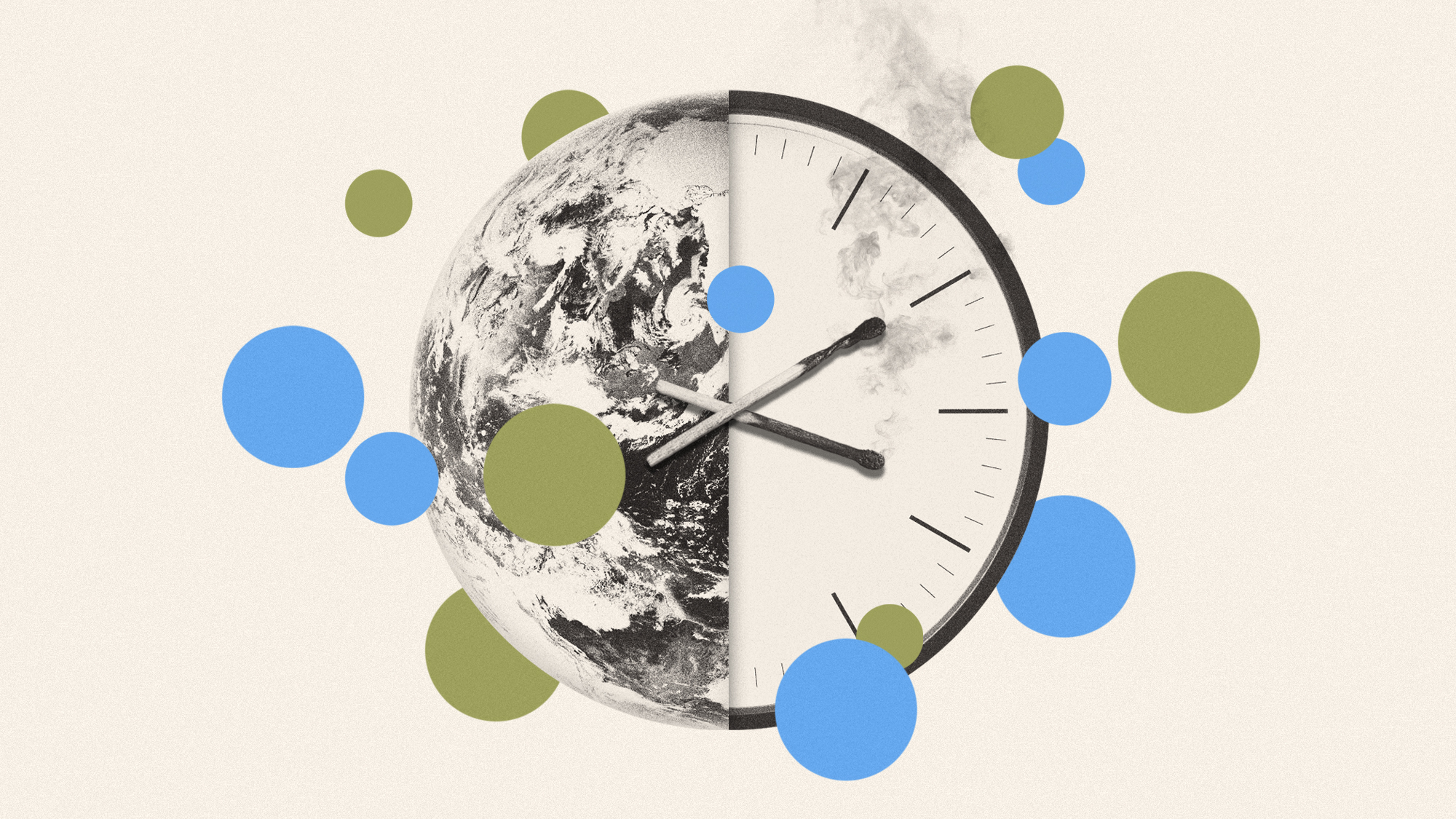Is Cop29 a 'waste of time'?
World leaders stay away as spectre of Donald Trump haunts flagship UN climate summit

A free daily email with the biggest news stories of the day – and the best features from TheWeek.com
You are now subscribed
Your newsletter sign-up was successful
Papua New Guinea is boycotting this week's Cop29 climate summit in Azerbaijan in protest against the "empty promises and inaction" from richer countries.
The Pacific island's foreign minister Justin Tkatchenko called the UN's flagship climate event a "total waste of time", and he joined a growing list of leaders who will not be attending.
The outgoing US President Joe Biden, European Commission President Ursula von der Leyen and China's President Xi Jinping are also among the absentees in Baku.
The Week
Escape your echo chamber. Get the facts behind the news, plus analysis from multiple perspectives.

Sign up for The Week's Free Newsletters
From our morning news briefing to a weekly Good News Newsletter, get the best of The Week delivered directly to your inbox.
From our morning news briefing to a weekly Good News Newsletter, get the best of The Week delivered directly to your inbox.
What did the commentators say?
"It was risky, now it's perilous," said Le Monde. The 29th world climate conference (Cop29) already had to overcome "numerous difficulties" – including wars in Ukraine and the Middle East, uncertain global economic conditions, and a host country that is one of the main exporters of fossil fuels – even before the election of climate-sceptic Donald Trump in the US. This, coupled with the absence of a host of high-level leaders, has led to "dark clouds gathering over the critical UN talks", said Sky News.
A year of weather disasters has "emboldened developing countries in their demands for climate cash", said Reuters, but they will be "competing for resources and attention" against economic concerns, wars in Ukraine and Gaza, and geopolitical upheaval.
The conference was billed as the "finance COP", with agreement on a major new $1 trillion climate fund for developing countries and strong national climate commitments – known as nationally determined contributions, or NDCs – top of the agenda. That has led smaller developing countries like Papua New Guinea, who find themselves on the frontline of the climate crisis, to take a stand against what they see as inaction by richer nations, who are also among the world's biggest carbon emitters.
With people already suffering the effects of climate change and average temperatures already breaching the 1.5C threshold set by the Paris Climate Agreement nearly a decade ago, a "limp reaffirmation feels like a bit of a waste of time", said The New Statesman.
A free daily email with the biggest news stories of the day – and the best features from TheWeek.com
"It would certainly be better to use these two weeks of negotiations to redouble efforts to reduce emissions, instead of obsessing over the semantics of 1.5C."
What next?
The elephant in the room is Trump. Though he has promised once again to withdraw the US from the Paris Climate Agreement, slow down the energy transition and massively boost fossil fuel production, he will not be inaugurated until January, so the Biden administration will still lead the American negotiations this week.
Even so, the "shockwaves of the election are likely to dampen the ambitions of other countries", said Le Monde.
Many of those gathered in Baku worry that US disengagement could lead other countries to "backpedal on past climate pledges or scale back future ambitions", said Reuters. "That is definitely a risk. People will be saying, well, the US is the second biggest emitter. It's the biggest economy in the world… If they don't set themselves an ambitious target, why would we?" said Marc Vanheukelen, the EU's climate ambassador from 2019 to 2023.
While it plunges the future of global temperatures into "disastrous flux", said The New Statesman, "one upshot of Trump 2.0 may be that it reminds countries committed to the green transition of their efforts' importance".
Ultimately, "election results don't alter the laws of physics", said Kaveh Guilanpour, from the non-profit Center for Climate and Energy Solutions. "Unless the world collectively steps up its efforts, the impacts of climate change will become increasingly severe and frequent and will be felt by an increasing number of people in all countries, including in the United States."